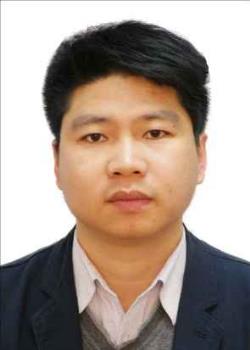Strengthen Digital Governance and International Cooperation to Build an Inclusive Digital Future
Chinese Academy of Cyberspace Studies
Session 242
At present, a new wave of technological revolution and industrial transformation rapidly evolves, which accelerates the development of the information society. Meanwhile, the swift evolution of technology also introduces a series of risks and challenges, including the digital divide, privacy protection, ethical issues, etc. These challenges have brought significant influence on the developing nations, and the growing “governance deficit” in cyberspace has become a pressing global concern. Against this backdrop, these is an urgent need to deepen international digital cooperation, establish inclusive governance frameworks, and promote technology sharing and capacity building, so as to yield the digital dividends to reach all nations and build a community with a shared future in cyberspace.
The forum aims to gather representatives from governments, international organizations, industry associations, think tanks around the world to share insights on how to build a more inclusive digital future, strengthen digital governance capacity building, promote the application of AI and other emerging technologies in advancing the building of information society, and facilitate global digital development and cooperation.
The key discussion topics include:
1. Applications and challenges of emerging technologies in building the information society. Analyze application cases of AI, the Internet of Things, big data and other new technologies in promoting the building of information society. Discuss the security, privacy and ethical issues arising from the deployment of new technologies.
2. Global digital governance mechanisms and international cooperation. Examine the current state and challenges of global digital governance collaboration and cooperation, and explore adaptable governance frameworks for emerging technologies. Propose recommendations for fostering a robust digital governance ecosystem and strengthening capacity building so as to advance international collaboration in digital governance involving all parties.









-
 C1. The role of governments and all stakeholders in the promotion of ICTs for development
C1. The role of governments and all stakeholders in the promotion of ICTs for development
-
 C2. Information and communication infrastructure
C2. Information and communication infrastructure
-
 C4. Capacity building
C4. Capacity building
-
 C5. Building confidence and security in use of ICTs
C5. Building confidence and security in use of ICTs
-
 C6. Enabling environment
C6. Enabling environment
-
 C11. International and regional cooperation
C11. International and regional cooperation
-
 Goal 1: End poverty in all its forms everywhere
Goal 1: End poverty in all its forms everywhere
-
 Goal 9: Build resilient infrastructure, promote sustainable industrialization and foster innovation
Goal 9: Build resilient infrastructure, promote sustainable industrialization and foster innovation
-
 Goal 10: Reduce inequality within and among countries
Goal 10: Reduce inequality within and among countries
-
 Goal 16: Promote just, peaceful and inclusive societies
Goal 16: Promote just, peaceful and inclusive societies
-
 Goal 17: Revitalize the global partnership for sustainable development
Goal 17: Revitalize the global partnership for sustainable development